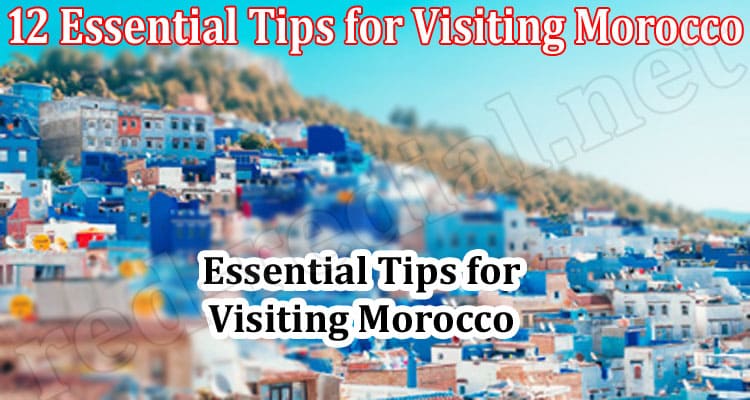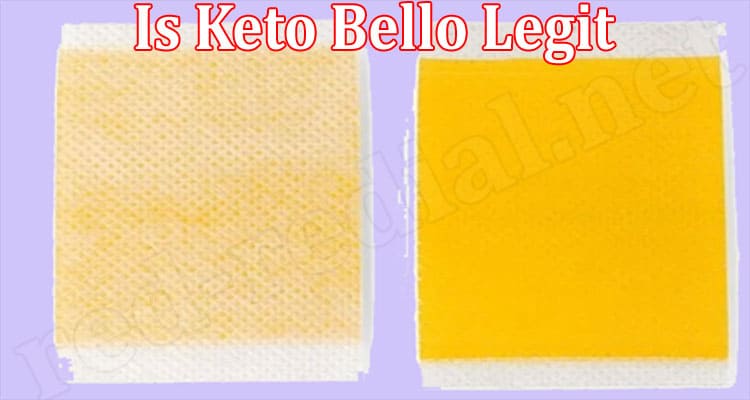12 Essential Tips for Visiting Morocco : A Complete Guide
12 Essential Tips for Visiting Morocco: Relaxing in a hotel or resort, being trapped in the medina, sipping a herbal tea, haggling in the street market, going on a bike adventure in the sand, shooting palm trees, attending a spa, viewing the blue village, inhaling the Atlantic coast air And, as a result of such encounters, there is a strong urge to explore Morocco. To enjoy all the possibilities offered by the African country, consider these travel recommendations.
All you desire to learn before exploring Morocco
Documentation, rules and habits to take into account, travel insurance to Morocco, how to move around, where to shop and eat, how to pay… This guide to Morocco will assist you to plan your trip correctly.
When is the ideal time to travel to Morocco ?
Morocco has a privileged climate almost all year round due to its geographical location. However, the best time to visit the country is spring, when temperatures are warmer and the landscapes are more beautiful. Autumn is also a good season for a trip to Morocco.
During the summer, the most recommended area is the coast, where the climate is less hot than in the rest of the country. Of course, many Moroccan beaches on the Atlantic coast and the Strait of Gibraltar are open sea, with strong currents, so you should be cautious. Waters like those of Essaouira are ideal for surfing. Trekking enthusiasts often take advantage of this season to walk in the north of the country or the Atlas Mountains.
If you choose spring or summer to go to Morocco, you should take into account when Ramadan is celebrated. During this holiday, many Moroccans take the opportunity to enjoy their vacations during this period. In addition, it is normal to find many establishments closed during the day. It is true that the country during this date has a special charm at night, especially in the souks.
Visiting Morocco in winter will allow you to enjoy the ski season, which usually runs between December and March. You can take benefit of the colder weather to move around the south of the country and the desert regions.
Documentation to visit Morocco
Spanish citizens only need a valid passport for a minimum of 3 months without the need for a visa.
In addition, both on entering and leaving Morocco, you must fill in a form with personal data and information about your stay. This procedure is done either at customs or onboard the ferry.
The maximum legal stay allowed for tourists is three months per year. If you wish to extend your stay, don’t hesitate to contact the immigration office.
Health considerations
There seem to be no compulsory vaccines for a trip to Morocco. Still, it is recommended to get others like thioid fever, polio, typhoid, and tetanus in contrast to standard immunizations (BCG, Hepatitis B). This is also a good idea to bring a mosquito repellent with you. Visit the Global Vaccination Center for additional details.
Foodborne illness is when you become sick from eating something you shouldn’t. Water is among the most serious threats, particularly outside large cities. As a result, only consume packaged or heated water, limit raw fruits and veggies, and minimize ice. Additionally, avoid consuming food that has not been refrigerated and in locations that do not have proper cleanliness precautions because of the extreme temperatures.
Sun: Protect yourself from the sun with sunscreen with a high protection factor and drink liquids frequently, especially on hot days.
Travel insurance to Morocco
Healthcare help for sickness and suitcase theft is Morocco’s most common travel events. Although Morocco’s healthcare is adequate in major cities, it is insecure in remote regions. In some areas the health service is poor and staff qualifications may be substandard. In addition, if complex treatment is required, it will be necessary to go to private clinics, which is costly.
For this reason, when visiting Morocco it is important to have a travel insurance with a high limit for medical expenses in private centers and repatriation, which can be very expensive.
With Totaltravel travel insurance from InterMundial you will have the necessary coverage during 24 hours in case of accident or illness (health care, hospitalization, diagnostic tests, medicines, medical transport) and you will have the most complete protection during your trip: repatriation, delay or loss of luggage, delays, loss of contracted services and cancellation or interruption of the trip, among others.
If you are visiting Morocco for adventure sports, take extreme precautions in activities such as paragliding, climbing or caving, as well as in the driving of quads and other motor vehicles, as search and rescue means and capabilities may be limited. To speed up and cover the costs of such important operations, we recommend that you take viajes a Marruecos out a sports insurance policy such as Totalsports, which provides you with the best coverage both while practicing sports -health care, rehabilitation expenses or problems with sports equipment, among others- and for the rest of the trip.
Standards and safety
Security in Morocco is high, especially in the cities, where there is a high police presence. However, take measures against petty theft, such as not carrying all your money in cash, keeping your documents safe and not flaunting valuables such as jewelry or technological devices. Do not get ripped off by unofficial guides or resellers. Avoid risky areas such as military zones and unmarked desert areas. In particular in the Rif Mountains, around the Ketama area, ignore those who try to sell illegal substances insistently to tourists.
Due to its culture, in Morocco it is not well seen the use of very showy clothes, without sleeves or that do not cover the legs. The practice of other religious cults is permitted but proselytizing is forbidden. Homosexual relations may be subject to criminal prosecution.
Before photographing a public building, it is advisable to request permission from the nearest police officer. In this article you have many more curiosities about the customs and habits of Moroccans.
Transportation to use to visit Morocco
Car: you have the possibility to embark by ferry from the ports of Almeria, Malaga, Algeciras, Tarifa or Motril to Ceuta, Melilla, Al Hoceima, Tangier or Nador.
To enter with vehicle and drive in Morocco is to provide the following documentation: Driving license, vehicle registration, international insurance or green card, vehicle import form D16Ter (available online) to be filled in at customs with the owner’s data, passport number, VIN, model and make of the vehicle, license plate and date of registration. If the car is not in your name, you must bring an authorization validated at your Consulate or Embassy of the person or company owner to drive this vehicle in Morocco. You are only allowed to enter one vehicle per person, which will be associated with your passport number. When leaving through the border you must cancel the vehicle’s import permit. Marrakech desert tours 3 days
The highway network is in an acceptable condition, and all of them are toll roads. Drive with caution, not only because of the recklessness of many drivers, but also because of pedestrian and animal crossings.
Moroccan roads are dangerous in terms of heavy traffic or poor maintenance, especially secondary roads. In addition to the danger of pedestrian and animal traffic, signage can be poor.
For driving in remote areas or in the desert, it is advisable to do it with a guide and an all-terrain vehicle.
Plane: it is usually the most comfortable, cheapest and fastest way to travel to Morocco. The country has 15 international and domestic airports. From Spain it is possible to buy direct flights to Morocco with Iberia, Royal Air Maroc and some low cost companies.
Train: Trains are usually punctual and comfortable, and are air-conditioned. The fastest trains cover the Casablanca-Rabat line. In the south of the country there is a ticket that combines train and bus.
Cab: Very used by the tourists to cross the cities and nearby localities. When taking a cab in Morocco, ask the driver to turn on the taximeter. If they do not have the device or refuse to activate it, you will have to close a price for the route before starting the journey. If you do not want to travel with strangers, buy all the seats in the cab, because the driver does not start the trip until all of them are occupied. In addition, there are cab drivers who pick up more passengers than allowed. In Morocco there are two kinds of cabs:
The Petit Taxi, brightly colored, have a capacity for three people. They circulate only within the city. They do not pick up passengers at established stops, so you must stop them by waving your hand. They usually gather around bus and train stations. The price of petit cabs ranges between 10-25 dirhams. The fare increases at night.
The Grand Taxi, large displacement, allow up to 6 passengers and also cover intercity routes. Their color varies according to the city to which they belong. In addition, they have a small sign on the roof and an identification on the doors.
Bus: Present in most cities, they are usually the cheapest way to move around. The average ticket price is usually about 2 dirhams. The trip can sometimes be slow and uncomfortable, as there is little space between seats, or they are usually occupied.
Coach: The most important company is CTM, it connects most cities and has the largest and most comfortable fleet, although somewhat more expensive. You can buy tickets online. When visiting Morocco from Spain by bus, the price of the trip also includes the ferry ride. However, the trip is usually long and uncomfortable, because before crossing the strait, all travelers must go through customs and immigration.
Currency and payment methods
Currency: The official currency of Morocco is the Dirham. The current exchange rate is approximately 1 = 10-11 dirhams. Banknotes are in denominations of 200, 100, 50, 20 and 10 dirham. Coins are in denominations of 10, 5 and 1 dirham and 50, 20, 10 and 5 cents.
Note that the dirham is a restricted currency, so it cannot be taken out of the country and can only be obtained once in Morocco, i.e. it is not available abroad. There are, however, no restrictions on the entry of foreign currency, although it must be declared.
Exchange currencies only at official exchange houses, identified by a gold badge, as it is illegal to exchange on the street. No commissions are charged on the exchange and a receipt is given that you must keep until you return to change the remaining dirham to the currency of your country of origin.
Credit cards: All major credit cards are accepted, but check with your bank about the possibility of using it in stores and ATMs, as well as the surcharges or commissions.
ATMs: Cash can be withdrawn from ATMs in the main capital cities. In smaller or rural towns they may not exist. Most international hotels have ATMs.
What can you bring in or out of Morocco and what can’t you bring in or out?
There are products whose importation is subject to limitations: tobacco (200 gr.), alcoholic beverages (1 bottle of wine of 1 liter and another of high alcohol), cologne (250 ml.), perfume (150 ml.), personal items or gifts (their value cannot exceed 2,000 dirhams). You can temporarily import objects intended for personal or professional use, such as camera, video camera, binoculars or record player, which you must re-export at the end of your stay. tour del Marocco
For animals and animal products, a veterinary certificate is required. For vegetables, a phytosanitary certificate is required.
Cell phone and Internet use
Check with your telephone company whether or not you have activated by default any voice and data roaming tariffs, in order to avoid surprises on your bill when you return from your trip. Remember to turn off data roaming so that your cell phone does not automatically connect to the Internet. Also keep in mind that when you are abroad and receive calls, both parties pay. Receiving messages is free of charge, but sending them is.
In Morocco the companies Maroc Télécom, Méditel and Wana operate. Coverage is quite good, except in remote rural or desert areas.
If you are going to utilise your cell phone frequently, it is best to buy a prepaid SIM card from one of these companies. Make sure that your cell phone is unlocked.
Another option to call from Morocco is to do it from télé-boutique or call shops and phone booths, which work with coins and prepaid cards sold at post offices and tobacconists.
Finding a free Wi-Fi network is more common in hotels than in cafes or businesses. There are cybercafés. You may be surprised that in Morocco you cannot make free calls over the Internet, i.e. using applications such as Skype, WhatsApp, Viber, Messenger or Facetime. Pocket wifi or “PocketWiFi” has been available in Marrakech for a few months for €5 per day. It captures all 3G/4G signals in wifi signal and allows you to connect several devices simultaneously.
Keep the emergency number in the agenda and write down the Embassy and/or Consulate information, as well as the policy number and 24h. assistance of your travel insurance.
What, where and how to buy: bargaining
One of the things to do in Morocco is shopping. Among the most popular destinations in Morocco is its biodiverse native products, which may be found at reasonable costs provided we master the widely used negotiating strategy.
Just strolling through the souks and admiring the colorful handicrafts is quite an experience. In addition, there are numerous cooperatives of artisans who have stores and workshops where it is common to see them at work.
Kindly call the Department of Handicrafts’ Local Representation if you have any queries or concerns about the acquisition of a handcrafted object.
As you will not resist to buy, never accept the first price that the merchant gives you, because it will be much higher than what you can pay after a few minutes negotiating. Be patient and bargain, it is one more attraction of the country. Do not get discouraged if you spend more than 10 or 15 minutes haggling. You will probably even be invited to tea. Here are some tips for successful haggling in Morocco:
Don’t show too much interest or excitement about your chosen item.
Never be the one to set the initial price.
Don’t pretend that you have a lot of money or that the item is more expensive or difficult to get in your home country.
Divide by two or three the first price the shopkeeper asks.
Don’t get angry or desperate. Smile. Bargaining is a way to maintain a social bond.
Don’t back down after a deal, you may offend the shopkeeper enough.
If you end up exhausted by bargaining or do not contemplate practicing it, buy in craft cooperatives or in stores that indicate “fixed prices”, that is, at a higher price than in the souks.
The local time in Morocco is one hour less than in Spain. In summer, two hours less. Department stores are usually open from Monday to Sunday from 10:00 to 22:00. The smaller stores usually have a schedule similar to the Spanish, although they usually close earlier in the afternoon. In the medinas, they usually close on Fridays and open on Sundays. Banks are open only a few hours a day, about three in the morning and two in the early afternoon. The activity of the public administration usually stops at noon and reopens until mid-afternoon. Museums are usually closed on Thursday and Friday mornings.
Typical Moroccan food
Do not leave Morocco without trying dishes such as couscous, with meat, vegetables and chickpeas; tajine of meat and fish, a stew prepared in clay pots; mechui or roast lamb; harira soup of meat, vegetables and legumes, typical of Ramadan; pastela, a pastry stuffed with meat or fish; kefta, spicy minced meat rolls skewered on wooden sticks. As a snack, fritters or rghaif (fried dough cakes) or some of the pastries made with nuts or the classic mint Moorish tea.
Where to eat? The cheapest option is the street vendors or fast food places, although you should pay attention to their hygiene measures. They usually sell sandwiches or kefta and tea or soft drinks. In the center of the cities there are the classic fast food chains of hamburgers and pizzas.
For breakfast or a snack, there are the fritter stores, which we can buy to take them in a nearby coffee shop with coffee, which is usually very strong, or tea.
In the popular restaurants, which are frequented by the local population, you can eat a variety of food at an economical price (6-15 euros).
The luxury restaurants in large hotels or tourist areas are worse value for money, although they are clean and have good service. They allow alcohol consumption, although at more expensive prices.
On the coast the chiringuitos are typical, in which sardines and fried and grilled fish are usually served.
Alcohol laws are quite liberal for tourists. The national wines, beers and mineral water are much more economic than the drinks of import.
Regarding tipping, it is usually 10% for large bills. Otherwise, about 5 dirhams is usually enough.
Is it practical to travel with a pet to Morocco?
If you wish to visit Morocco with a pet, please consult the Moroccan regulations regarding the admission and the existing in Europe for the return of the animal to Spain, given the existence of isolated outbreaks of rabies in Morocco.
Morocco is not a country where dog or pet ownership is common. In addition to the difficulty of accessing pet-friendly businesses or services, finding a veterinarian in the cities is not as easy as in any European city. The veterinary clinics and the main supermarket chains (Marjane, Aswak Assalam or Acima) have pet food and care products.




